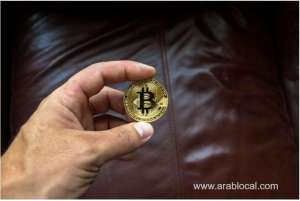Not so long ago, trading was a game for a certain type of person. The kind who wore a expensive watch and referred to money as ‘figures’ not numbers. A world of bespoke suits, fast talking brokers and office towers filled with people who spent their days making big decisions that felt important. It was exclusive by design – only open to those who knew the right people or had the kind of money to absorb the inevitable early mistakes.
That world though is looking rather different these days. The old barriers – the need for connections, big initial capital, a desk near the financial centre of a city – have crumbled. The once golden gates have swung open and in their place stand online trading platforms, open to anyone with an internet connection and a spare afternoon. The markets are no longer the preserve of a few suited individuals but are now more unpredictable, more democratic and at times utterly mad. Platforms like One Royal, designed for both pros and newbies, are proof that the trading world is no longer content to hide behind closed doors.
From Trading Floors to Living Rooms
The first time someone traded from their phone while still in their pyjamas something changed. It was no longer about standing on a crowded floor, shouting into a phone or squinting at a Bloomberg terminal in an air-conditioned office. Trading had left the trading floor and spilled into coffee shops, train stations and kitchen tables. What was once a job had become for many a hobby – something to be done between meetings, over lunch and late at night.
Others might say this is a double-edged sword. The removal of the gatekeepers has let in a new kind of trader – the enthusiast, the hobbyist, the mildly interested. Gone are the days when the financial world revolved around the actions of a select few institutions. Now anyone with a decent Wi-Fi and a taste for risk can have a go. Sometimes with spectacular results. Sometimes not so much.
Technology is the Great Equaliser
If there’s one thing the financial world has always been good at, it’s keeping an edge just out of reach. In the past, this meant better research, faster info or private networks. Now technology is eating away at those.
Online platforms don’t just give you access to markets – they give you the same tools and data that was once reserved for professionals. Graphs, indicators, risk analysis, automated strategies – things that were unimaginable for the average person 20 years ago are now standard. So the playing field may not be level but it’s at least more level-able. A self taught trader in São Paulo, Sydney or Seoul can now have the same data as someone in the heart of Wall Street and often with fewer layers of bureaucracy between them and their decisions.
Speed and the Illusion of Control
Of course, with accessibility comes impatience. Trading used to be a game of patience, of waiting for the right moment, the right conditions. Now it’s a world obsessed with speed. Algorithms make trades in milliseconds, platforms offer instant execution and people want results yesterday.
There’s something unsettling about how technology has not just accelerated the mechanics of trading but the very psychology of it. The urge to act – because the charts are moving, because a notification just buzzed, because there’s always fear of missing out – is greater than ever. What was once a slow process has for many become a frenetic one. It’s no longer enough to be in the market; one must be in constant motion, clicking, tweaking, reacting.
But the best traders are those who resist the urge to get swept along. The platforms may have changed but the principles remain the same. The biggest advantage anyone has in the market is not a new feature or a clever algorithm but the ability to think independently, to step back and make decisions without being bullied by flashing numbers and blinking notifications.
The Myth of the Overnight Success
If you were to believe half the posts on social media trading is a get-rich-quick scheme where fortunes are made in days and success is a matter of confidence. The reality as always is less glamorous. The market rewards patience, discipline and most importantly the ability to be wrong.
But the stories that get told are always the rare, unusual successes – the person who turned a small sum into a fortune overnight, the trader who saw what no one else saw. What’s not talked about are the thousands of people who tried the same and ended up with a much more mundane, much more disappointing result.
Online platforms have made trading easier yes, but they have also made it easier to misunderstand what trading really is. It’s not a lottery ticket nor is it a guaranteed path to wealth. It’s at its core a game of probability where skill plays a role but so too does luck.
The Future of Trading
So what does it all mean? With platforms getting more and more advanced and new traders joining every day, the future of trading looks less like going back to the old days and more like evolution. The systems will get faster, the tools will get sharper and the opportunities – and risks – will get bigger.
The real change is in the mindset. Trading is no longer an occupation or a profession; it’s an ecosystem of its own, a digital landscape where anyone can play. Some will take it seriously, others as a bit of a hobby, and a few will dabble long enough to realise they’re better off leaving it to someone else.
Whatever form it takes, one thing is sure: the era of exclusivity is gone. Trading no longer belongs to the privileged, the networked or the born-to-the-manor financiers. It belongs to anyone who will brave its uncertainty, learn from its mistakes and sometimes just sit back and enjoy the bloody chaos of it all.





